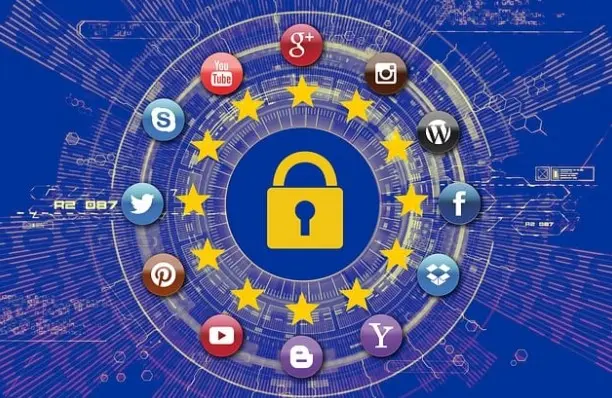The General Data Protection Regulation (GDPR) has revolutionized the way businesses handle personal data. One key aspect of GDPR is the requirement for organizations to provide transparent information to individuals about how their data is being processed. This is where privacy notices come into play. This article will explore the basics of GDPR, the key principles it upholds, and the crucial role privacy notices play in ensuring compliance.

Understanding the Basics of GDPR
The General Data Protection Regulation (GDPR) is a comprehensive data protection law that came into effect on May 25, 2018. It aims to protect the fundamental rights and freedoms of individuals with regard to the processing of their personal data.
GDPR is not just a set of rules and regulations; it is a landmark legislation that has transformed the way organizations handle personal data. It has brought about a significant shift in how businesses operate, ensuring that individuals have greater control over their information and are protected from potential misuse or unauthorized access.
Under GDPR, personal data is defined as any information relating to an identified or identifiable natural person. This includes obvious identifiers such as names and addresses and less obvious data points such as IP addresses, cookie data, and even genetic or biometric information.
Why is GDPR Important?
The importance of GDPR cannot be overstated. With the digital age and the vast amounts of personal data being collected and processed, it is vital for individuals to have control over their own information. GDPR provides a framework for organizations to ensure that data protection is a top priority.
Before GDPR, there was a lack of harmonized data protection laws across the European Union (EU), resulting in inconsistent data privacy and security approaches. GDPR addresses this issue by providing a unified set of regulations that apply to all EU member states, ensuring consistent protection for individuals’ personal data.
One of the key principles of GDPR is the concept of “data minimization,” which requires organizations to only collect and process personal data that is necessary for a specific purpose. This principle helps to prevent the unnecessary collection and storage of personal data, reducing the risk of data breaches and unauthorized access.
Another important aspect of GDPR is the requirement for organizations to obtain explicit consent from individuals before collecting and processing their personal data. This means that individuals have to actively give their consent rather than organizations assuming consent based on pre-ticked boxes or inactivity. This empowers individuals to make informed decisions about how their data is used.
Furthermore, GDPR introduces the concept of the “right to be forgotten,” which allows individuals to request the erasure of their personal data under certain circumstances. This gives individuals more control over their online presence and the ability to remove outdated or irrelevant information.
In addition to these rights, GDPR also imposes strict obligations on organizations to implement appropriate technical and organizational measures to ensure the security of personal data. This includes measures such as encryption, access controls, and regular data protection impact assessments.
Overall, GDPR represents a significant step forward in data protection and privacy rights. It places individuals at the center of the data processing equation and holds organizations accountable for their handling of personal data. By establishing clear rules and obligations, GDPR aims to create a more transparent and trustworthy digital environment for everyone.
Key Principles of GDPR
Lawfulness, Fairness, and Transparency
Lawfulness, fairness, and transparency are key pillars of the General Data Protection Regulation (GDPR). By ensuring that personal data processing is lawful, organizations can build trust with their customers and stakeholders. Fairness ensures that individuals are treated equitably and that their rights are respected throughout the data processing journey. On the other hand, transparency requires organizations to provide clear and easily understandable information to individuals about how their data is being collected, used, and shared.
Organizations must establish a lawful basis for processing personal data, such as the necessity of processing for the performance of a contract, compliance with a legal obligation, protection of vital interests, consent, the performance of a task carried out in the public interest or in the exercise of official authority, or legitimate interests pursued by the data controller or a third party.
Furthermore, organizations must ensure that individuals are fully informed about the purposes of data processing, the categories of personal data being processed, the recipients or categories of recipients of the data, the retention period, and any transfers of data to third countries or international organizations. This information should be provided in a concise, transparent, intelligible, and easily accessible form, using clear and plain language.
Purpose Limitation
Organizations must clearly define the purposes for which they are collecting and processing personal data. They must ensure that data is only processed for these specific purposes and not used for any other unauthorized activities.
Purpose limitation is a crucial aspect of GDPR, as it prevents organizations from using personal data for purposes that individuals have not consented to or that are not compatible with the original purpose of collection. By defining clear and specific purposes, organizations can ensure that data processing is focused and aligned with the expectations and rights of individuals.
Organizations should establish robust procedures and policies to ensure that personal data is collected and processed only for legitimate and lawful purposes. This involves conducting thorough assessments to determine the purpose of data processing, identifying any potential risks or privacy implications, and implementing appropriate safeguards to protect the rights and interests of individuals.
Data Minimization
GDPR encourages organizations to collect and store only the minimum amount of personal data necessary for the intended purpose. This principle emphasizes the importance of limiting data collection and retention to mitigate privacy risks.
Data minimization is a privacy-oriented approach that promotes the idea of “less is more.” Organizations can reduce the potential risks associated with data breaches, unauthorized access, and misuse by minimizing the amount of personal data collected. This principle encourages organizations to carefully evaluate the necessity and proportionality of collecting specific data elements and to avoid collecting excessive or irrelevant information.
Organizations should implement data minimization practices by conducting regular data audits, reviewing data collection processes, and adopting privacy by-design principles. This involves assessing the data lifecycle, identifying opportunities to reduce data collection, and implementing technical and organizational measures to ensure that personal data is processed only when necessary and in a secure manner. PPGS ™can provide an objective assessment and audit of your security measures. The audit can ensure that you are in compliance with GDPR and industry standards, including data minimization practices.
Accuracy
Personal data must be accurate and kept up to date. Organizations should take measures to ensure that data is corrected or erased if inaccurate or incomplete information is identified.
The accuracy principle of GDPR aims to ensure that personal data is reliable and free from errors. Organizations are responsible for maintaining accurate records and rectifying any inaccuracies in a timely manner. This is particularly important in cases where inaccurate data may significantly impact individuals’ rights, decisions, or interests.
To uphold the accuracy principle, organizations should provide mechanisms for individuals to update and correct any misinformation. Regular data quality checks, validation processes, and cleansing activities can help organizations maintain accurate and reliable data records.
Storage Limitation
GDPR emphasizes the need for organizations to store personal data only for as long as necessary. Data should be securely deleted when it is no longer required for the purpose it was collected.
Storage limitation is a critical principle that ensures personal data is not retained indefinitely, reducing the risks associated with unnecessary data storage. Organizations must establish clear retention periods for different categories of personal data and regularly review and update these periods to align with legal requirements and the purposes for which the data was collected.
Organizations should implement secure data deletion processes and ensure that personal data is securely destroyed or anonymized when it is no longer necessary for the purpose it was collected. By adopting data retention policies and procedures, organizations can effectively manage the lifecycle of personal data and minimize the potential privacy risks associated with excessive data storage.
Integrity and Confidentiality
Organizations must implement appropriate technical and organizational measures to protect personal data against unauthorized access, disclosure, alteration, or destruction.
Integrity and confidentiality are fundamental principles of GDPR that focus on safeguarding the security and privacy of personal data. Organizations must implement robust security measures to protect personal data against unauthorized access, accidental loss, or destruction.
This includes implementing encryption, access controls, firewalls, intrusion detection systems, and other security measures to ensure personal data’s confidentiality, integrity, and availability.
Organizations should conduct regular security assessments, train employees on data protection best practices, and establish incident response plans to effectively respond to data breaches or security incidents. By prioritizing the integrity and confidentiality of personal data, organizations can build trust with individuals and demonstrate their commitment to protecting personal information.

The Role of Privacy Notices in GDPR
What is a Privacy Notice?
A privacy notice, also known as a privacy policy, is a statement that explains to individuals how their personal data is being processed. It outlines the purposes for which data is collected and explains the individual’s rights in relation to their data.
Why are Privacy Notices Crucial in GDPR?
Privacy notices play a crucial role in GDPR compliance as they provide individuals with vital information about processing their personal data. Organizations can build trust and demonstrate accountability by being transparent about data handling practices.
Essential Elements of a GDPR-Compliant Privacy Notice
The Identity and Contact Details of the Controller
A GDPR-compliant privacy notice must clearly state the identity of the organization responsible for processing personal data, along with their contact details. This information allows individuals to make inquiries or exercise their rights.
The Purposes of Processing and Legal Basis
Organizations must specify the purposes for which personal data is being processed. Additionally, they must provide a legal basis for the processing, such as consent or legitimate interests.
The Recipients or Categories of Recipients of Personal Data
Privacy notices should identify any third parties with whom personal data may be shared. This ensures that individuals are aware of potential data transfers and recipients of their information.
The Rights Available to Individuals
A GDPR-compliant privacy notice should inform individuals about their rights, such as the right to access their data, the right to rectify inaccuracies, the right to erasure, and the right to object to the processing of their data. The team at PPGS ™ can develop a GDPR-compliant policy for your organization. Contact us today for more information.
By understanding the basics of GDPR, the key principles it upholds, and the role privacy notices play in compliance, organizations can ensure they are on the right track toward data protection and privacy. Privacy notices are an essential tool for transparency and accountability, enabling individuals to make informed choices about the use of their personal data. With GDPR, privacy notices have become vital to building trust and establishing strong data protection practices.
